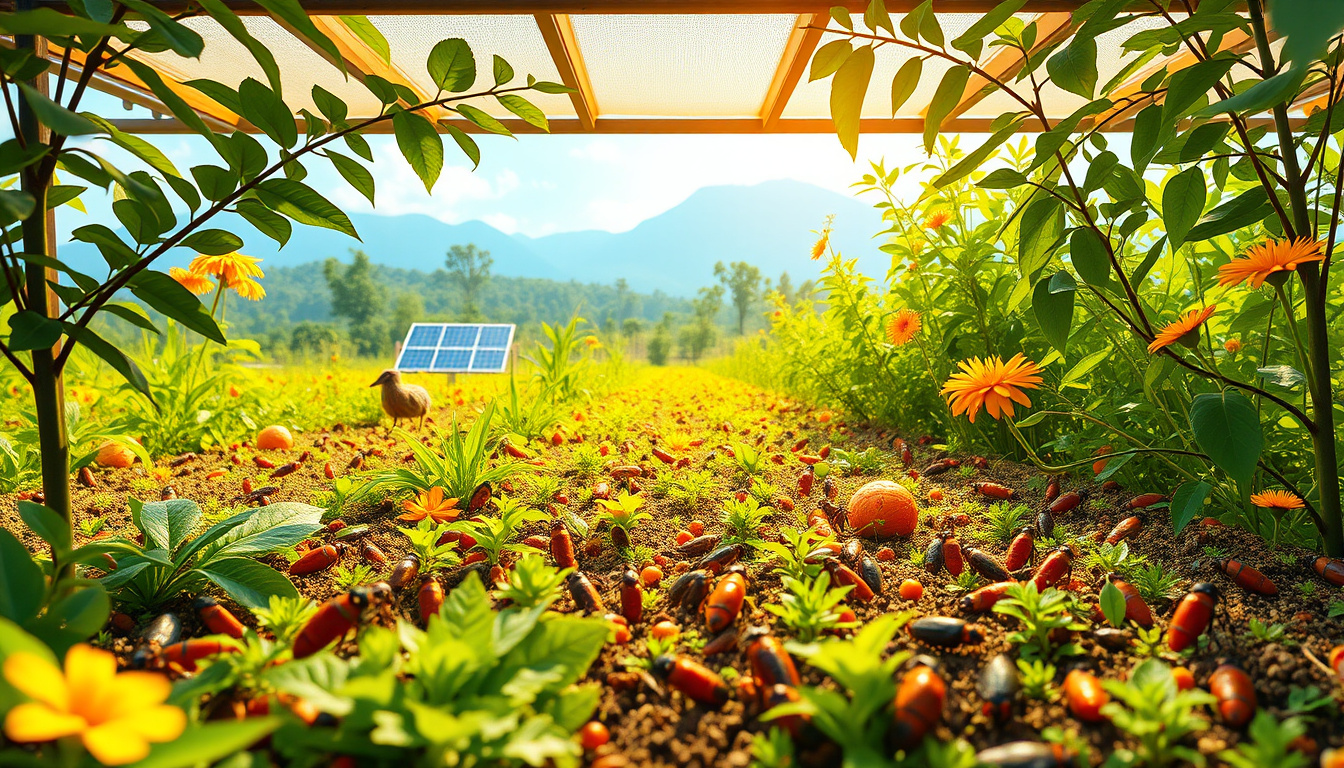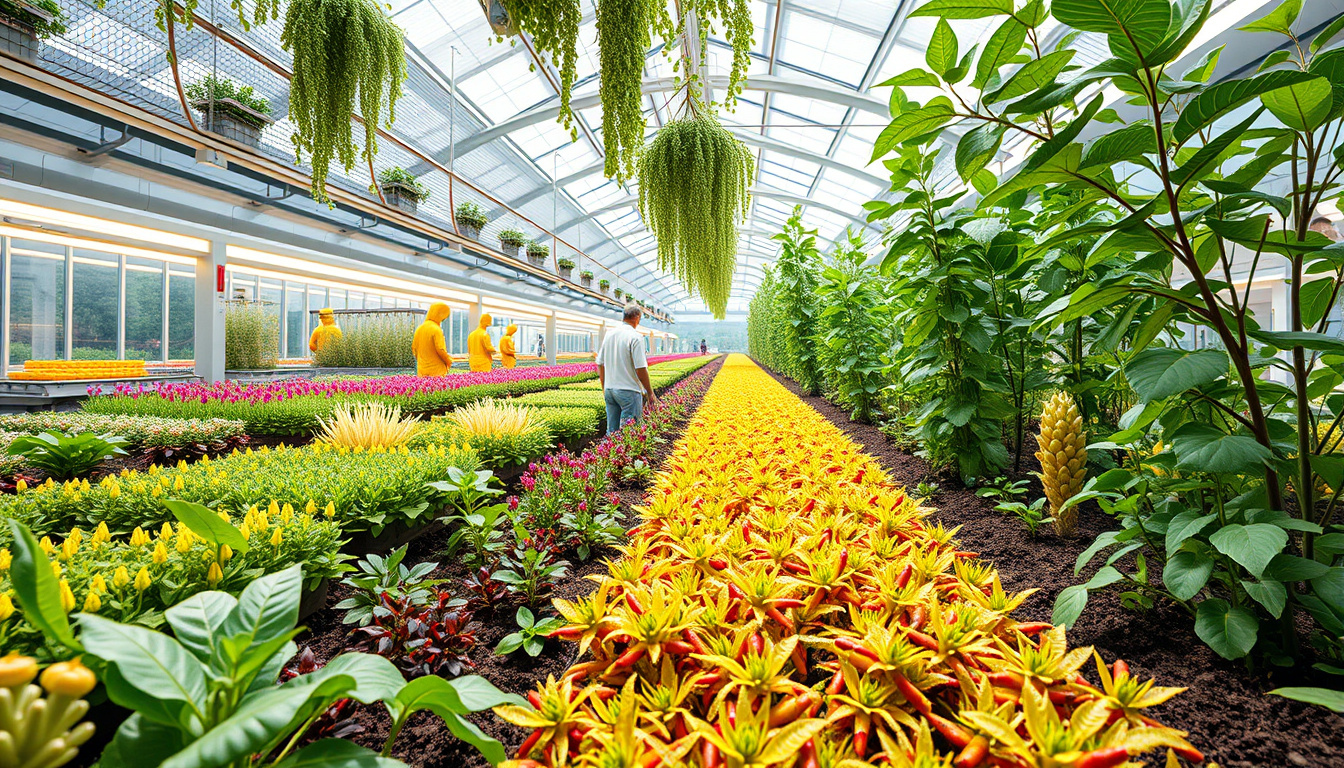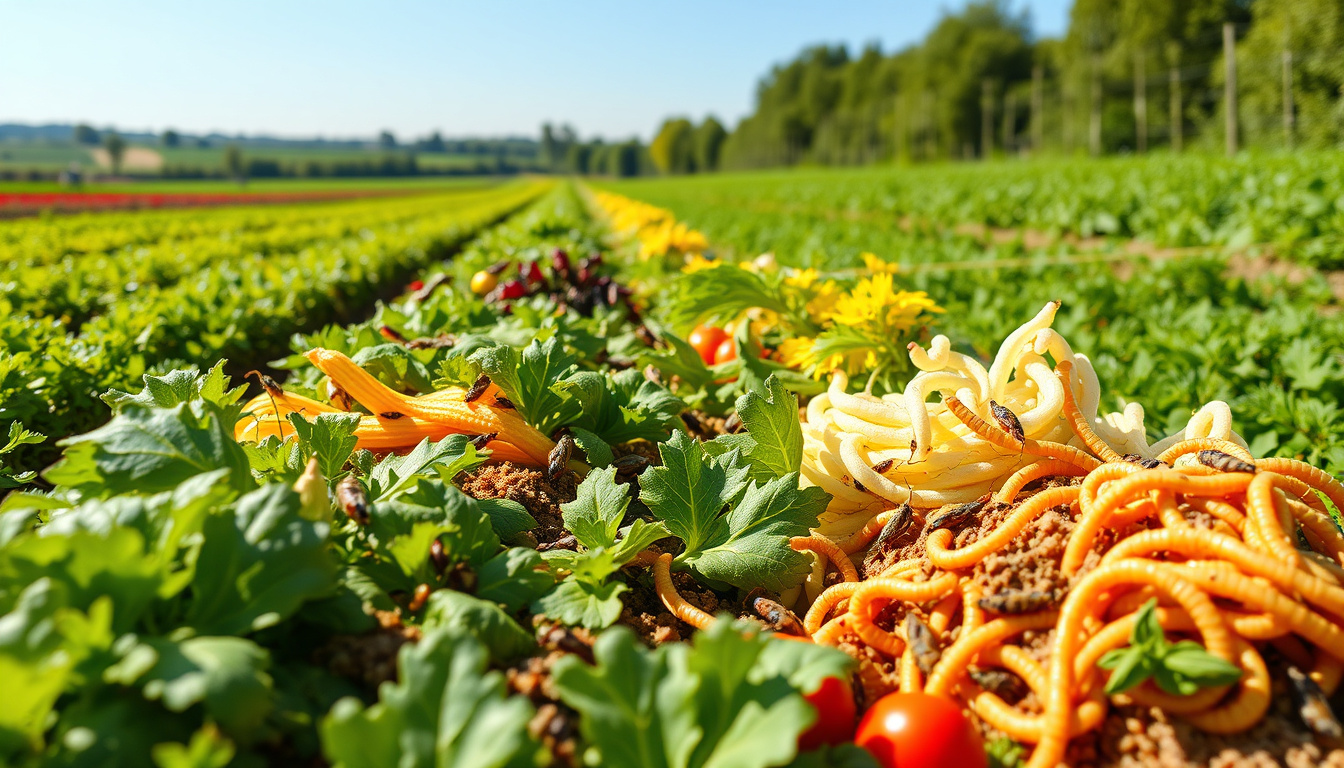As the global population continues to rise and the demand for protein sources becomes increasingly critical, edible insects are emerging as a sustainable solution. With their impressive nutritional profile and minimal environmental footprint, edible insects as sustainable protein offer an innovative alternative to traditional livestock farming. This article will explore the various aspects of edible insects, including their nutritional benefits, the environmental impact of insect farming, cultural acceptance across different societies, and the role they are poised to play in the future of global food systems. Join us on this exploration of a fascinating and eco-friendly protein source that could help feed the world.

Key Takeaways
- Edible insects provide a rich source of protein and essential nutrients.
- Insect farming has a lower environmental impact compared to traditional livestock farming.
- The cultural acceptance of edible insects is growing in various regions worldwide.
- Trends indicate an increasing interest in sustainable food sources, including insects.
- The future of edible insects looks promising in addressing global food security challenges.
Introduction to Edible Insects
Edible insects as sustainable protein are increasingly recognized as a viable solution to global food security challenges. With the world’s population projected to reach
9.7 billion by 2050, the demand for protein sources is on the rise. Traditional livestock farming not only requires vast amounts of land and water but also contributes significantly to greenhouse gas emissions. In contrast, edible insects require minimal resources, producing far less waste and emitting fewer carbon emissions. Furthermore, they are nutrient-dense, packed with high-quality protein, vitamins, and minerals, making them an excellent alternative to conventional meat. As more consumers and products introduce insects into their diets, understanding the benefits of edible insects as sustainable protein can help pave the way for a greener future.
Nutritional Benefits of Insects
In recent years, the global conversation around sustainable food sources has led to the rising popularity of edible insects as sustainable protein options. Packed with essential nutrients, these tiny powerhouses offer a variety of health benefits. Edible insects are high in protein, containing up to 80% protein by weight, making them an excellent alternative to traditional sources like beef or poultry. Additionally, they are rich in vitamins and minerals, including B vitamins, iron, and zinc, which are crucial for maintaining overall health. Another significant advantage of edible insects is their low environmental impact; they require far less land and water to produce compared to livestock, making them a more eco-friendly protein source. By choosing edible insects, consumers not only nourish their bodies with quality protein but also contribute to a more sustainable food system.
‘The future of food is not just about feeding the world, but nourishing it sustainably, and edible insects may be the answer to our protein dilemma.’

Environmental Impact of Insect Farming
The environmental impact of insect farming has garnered significant attention in recent years, particularly as the world seeks sustainable alternatives to traditional livestock. Edible insects as sustainable protein sources present a promising solution to many ecological challenges. Unlike conventional meat production, insect farming requires substantially less land, water, and feed, making it an eco-friendly choice that can alleviate the pressures on our planet’s resources. For instance, crickets, one of the most widely farmed edible insects, are known to emit fewer greenhouse gases and convert feed into protein much more efficiently than cattle. This efficiency not only reduces the environmental footprint of food production but also contributes to biodiversity conservation by minimizing the need for extensive agricultural lands traditionally used for raising livestock. As the global population continues to rise, exploring edible insects as sustainable protein becomes increasingly vital for future food security and environmental sustainability.
Cultural Acceptance and Consumption Trends
As the world grapples with pressing environmental concerns and the need for sustainable food sources, edible insects as sustainable protein have emerged as a viable alternative. Cultural acceptance of consuming insects is gradually shifting, as many communities already incorporate them into traditional diets. Countries in Asia, Africa, and Latin America have long recognized insects not only as a source of nutrition but also as a delicacy. Recent trends indicate a growing interest in edible insects among Western countries, driven by an increasing awareness of their low environmental impact and high nutritional value compared to traditional livestock. This paradigm shift is further supported by innovative culinary approaches, as chefs and food entrepreneurs experiment with insect-based ingredients, aiming to create appetizing dishes that resonate with health-conscious consumers. As sustainable food consumption becomes a priority, edible insects are likely to find their place on dinner plates around the globe.

Future of Edible Insects in Global Food Systems
As the world grapples with the pressing challenges of food security, climate change, and population growth, the future of edible insects as sustainable protein emerges as a promising solution. These nutrient-dense creatures not only offer a rich source of protein but also come with a significantly lower environmental footprint compared to traditional livestock. Research indicates that farming edible insects requires far less land, water, and feed, making it an efficient alternative for feeding a growing global population. Additionally, with rising concerns over greenhouse gas emissions from conventional meat production, integrating edible insects into our diets could immensely reduce our carbon footprint. Countries across Asia, Africa, and Latin America have embraced this centuries-old practice, and as awareness spreads, the appetite for edible insects is poised to soar in Western markets as well. By investing in the cultivation and processing of edible insects, we can create a sustainable food source that not only addresses the nutritional needs of millions but also promotes ecological balance—positioning edible insects as a cornerstone of future global food systems.
Frequently Asked Questions
What are edible insects and why are they considered sustainable protein?
Edible insects are insect species that can be consumed by humans, and they are considered sustainable protein because they require significantly less land, water, and feed than traditional livestock. Additionally, they emit fewer greenhouse gases, making them an environmentally friendly source of nutrition.
What nutritional benefits do edible insects offer?
Edible insects are rich in protein, healthy fats, vitamins, and minerals. They are a complete source of protein, offering essential amino acids, and can also provide important nutrients such as iron, zinc, and B vitamins, making them a nutritious alternative to conventional meat.
How does insect farming impact the environment compared to traditional livestock farming?
Insect farming has a lower environmental footprint than traditional livestock farming. It uses less water and land, produces minimal greenhouse gas emissions, and reduces waste by being able to consume organic by-products. This makes it a more sustainable method of protein production.
Are edible insects accepted in cultures around the world?
Cultural acceptance of edible insects varies globally. While they are a common food source in many Asian, African, and Latin American countries, acceptance in Western cultures is gradually increasing due to growing interest in sustainability and alternative protein sources.
What is the future of edible insects in global food systems?
The future of edible insects looks promising as more people recognize their benefits in terms of nutrition and environmental sustainability. Innovations in insect farming technology, increased availability, and raising awareness about their advantages are likely to contribute to their incorporation into mainstream diets worldwide.

Leave a Reply